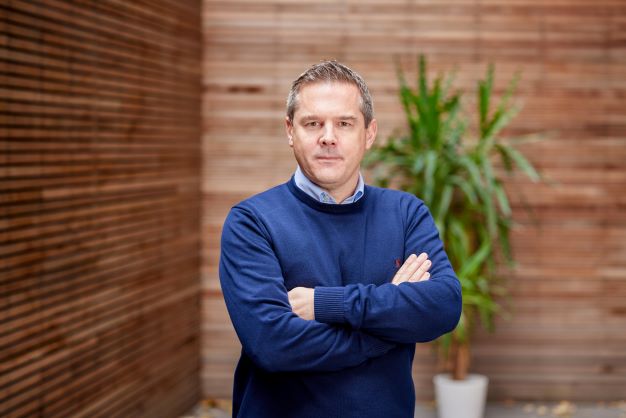InMotion Ventures has shifted to pre-seed investing where it says it bring the most value to startup with its expertise in R&D, automotive design and testing.

Over six months in 2022 and 2023, UK car company Jaguar Land Rover, which has rebranded as JLR, overhauled its corporate venture unit, InMotion Ventures, to make the investment arm have more strategic value to the parent.
As part of the rethink, the team started investing more in very early-stage companies at the pre-seed and seed level. This was driven by the fact that parent JLR was already looking well into the future, testing vehicles that are going to come to market in 2028 and 2029. The CVC team needed to get ahead of its parent and look out even further into the 2030 and 2040 timeframe to see what the trends will be shaping automotive.
“For us to get ahead of the game and to add value, and surprise and delight the teams that work in JLR, our role needed to get ahead of them. That’s where pre-seed and seed investing really came from and the recognition that the value that we can add to startups and the value that we can bring to JLR comes at that much earlier stage,” says Mike Smeed, managing director of InMotion Ventures.
Since February 2023, most of the 11 new companies it has invested in are either pre-seed or seed-stage companies.
InMotion Ventures is not the only CVC focusing more on early-stage investments. Seed stage funding rounds accounted for 32% of all the corporate-backed funding deals in 2023, according to Global Corporate Venturing’s Keystone survey data, more than double the portion seen in 2021.
While the InMotion Ventures’ team still invests in later-stage companies, its strength lies in the kind of work it can do with early-stage companies that are still developing their technologies. It helps these young businesses in areas such as research and development, testing and design expertise.

Mike Smeed will be speaking about how CVCs can have a greater impact on early-stage portfolio’s at the GCV Symposium in London in June.
These close partnerships where JLR helps develop a startup’s product or technology is a strong selling point that InMotion brings to a deal, says Smeed. This makes up for the fact that it does not bring large cheque sizes to a financing round – it typically invests between £250,000 ($316,000) and £1m. The financial impact it can have on a startup is limited compared with the expertise it can bring in the automotive market, says the managing director.
“What we are really interested in is finding exceptional founders that can really help move the needle strategically for JLR,” says Smeed. “These are the types of founders that other CVCs and VCs are looking for. Therefore, we have got to be really clear to founders what we offer them and why they should take our money.”
Portfolio companies that InMotion Ventures recently invested in include Uncaged, a producer of alternatives to animal-based leather; Verax AI, a provider of security solutions for generative AI; and ChipFlow, an open-source software platform for micro-chip design.
“What we can bring is the endorsement of the JLR company and brand name to the fact that what this startup is looking to deliver in terms of product or service is something that is needed,” says Smeed.
To make sure it is actively collaborating with startups, each of InMotion Ventures’ investments is sponsored by a JLR business unit. In the case of Verax AI, it partners with the startup on design. It has worked on a proof of concept for ChipFlow’s open-source semiconductor design platform.
To source pre-seed and seed deals, the venture team spend a lot of time building a network with accelerators. The team goes to startup pitches and demo days with the likes of UK-based VC fund and accelerator Deeptech Labs, UK venture builder Cambridge Future Tech and Intel Ignite, a 12-week accelerator started by US chipmaker Intel. It also keeps close ties to the university spinout ecosystem. Parent JLR partners with the University of Warwick in the UK, for example, on an automotive work skills development programme.
The venture unit is also considering investing in funds that focus on pre-seed and seed investing. “What we are looking to do is create relationships with funds that are concentrating on identifying those pre-seed and seed-stage founders and being the pull that provides the follow-on capital potentially or also the ability to co-invest,” says Smeed.
The venture team focus on the UK, Israel and the US, but it wants to expand in France and Germany because “those are unique ecosystems with a lot to offer in the industrial and deep tech spaces,” says Smeed.










